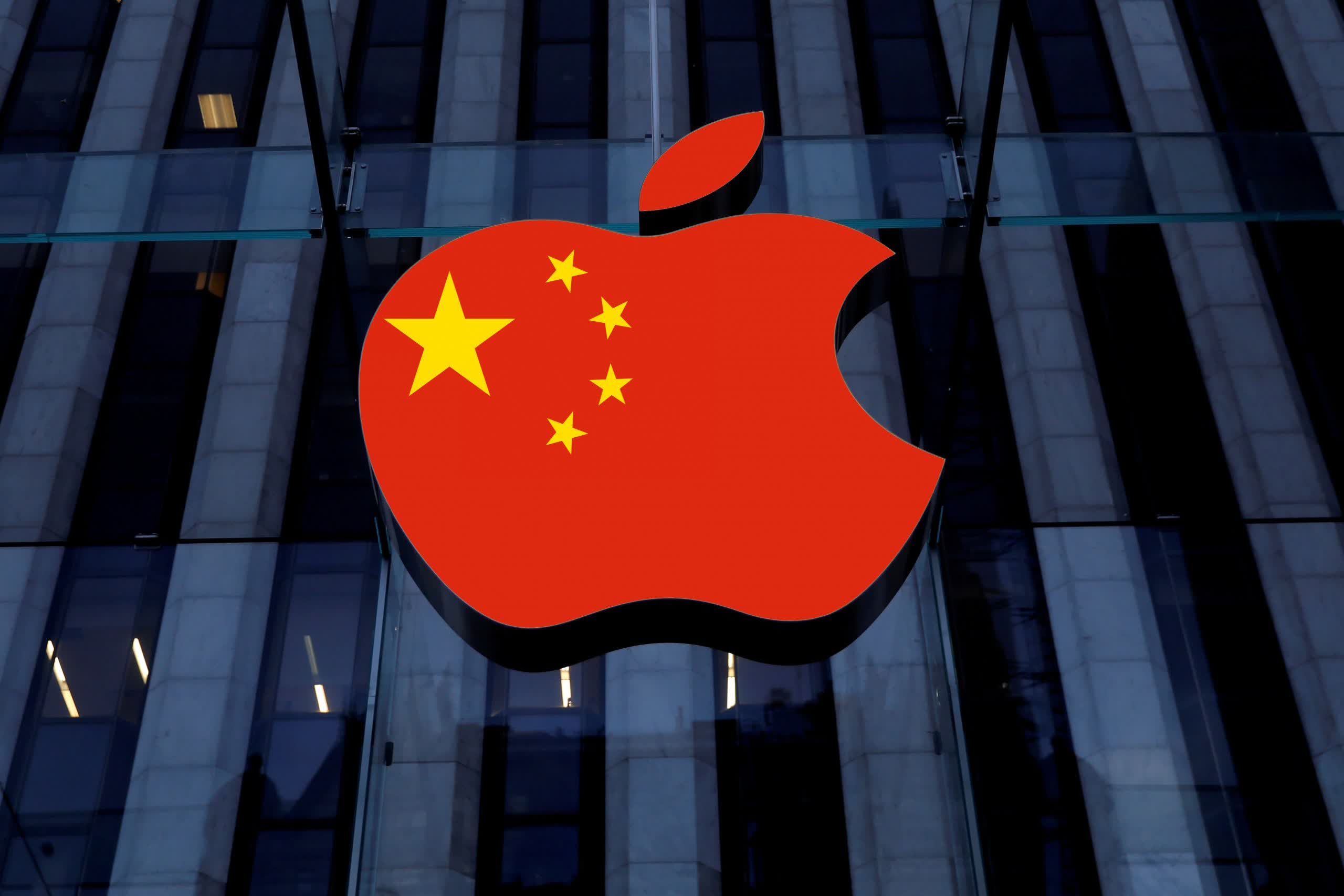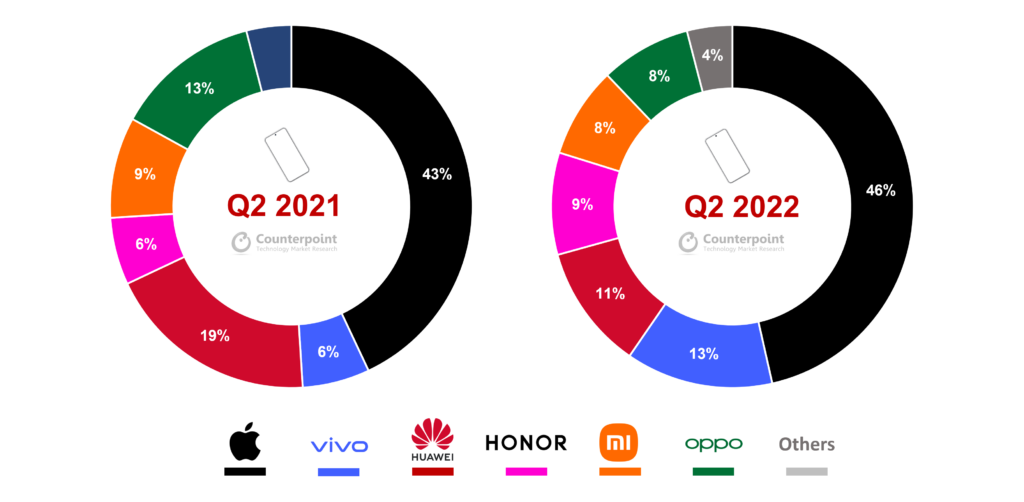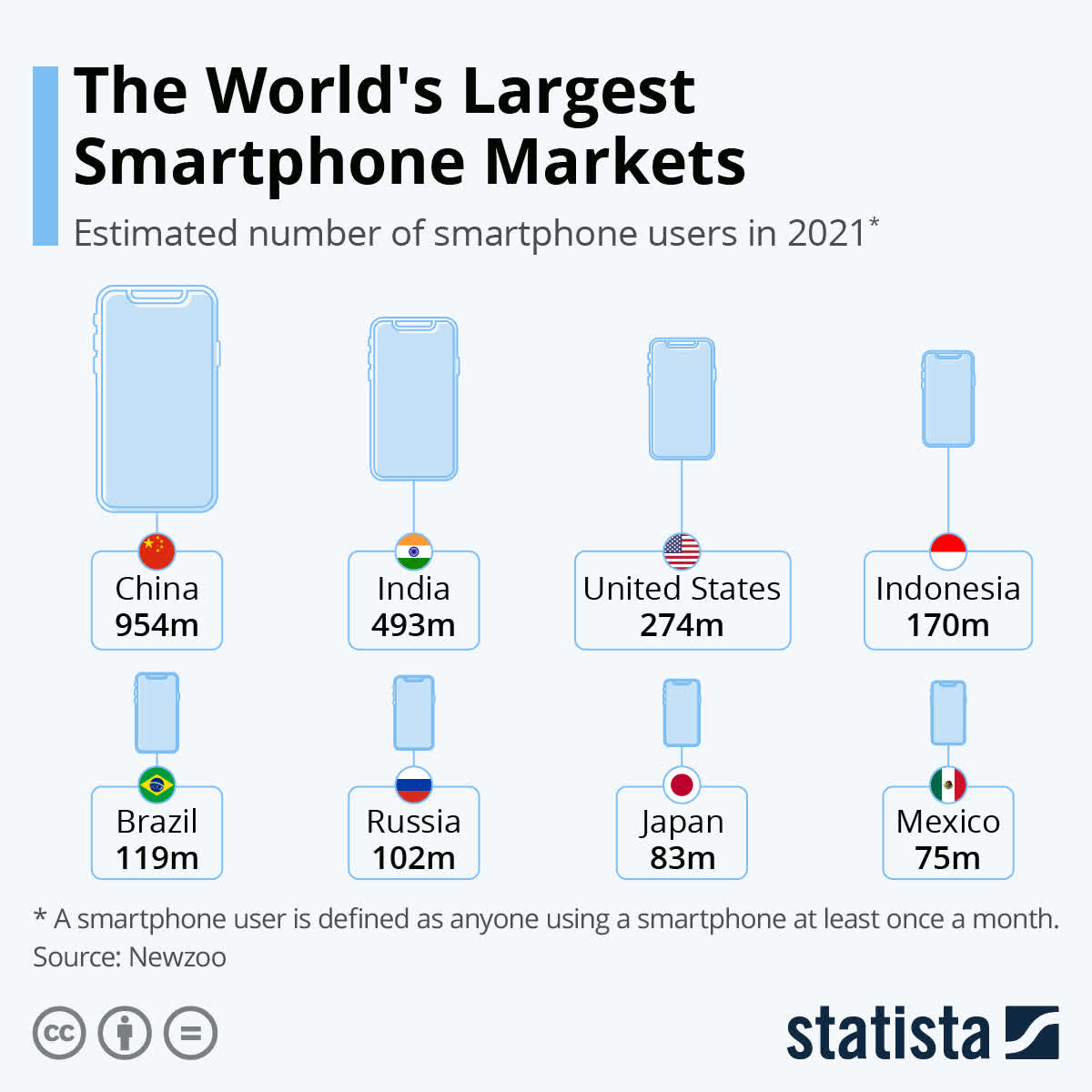In context: Apple has found more success in China than most US firms, especially in the high-end smartphone segment where Cupertino takes almost half of all sales in the country. Having such a large slice of the world's biggest phone market has long been cited as why Apple often kotows to China's authoritarian government.
As reported by the South China Morning Post, Apple grabbed 46% of China's premium smartphone segment (handsets sold over $400) in the second quarter thanks to strong iPhone 13 sales, according to Counterpoint Research. That's an increase of 3% compared to the same period one year earlier.
It was even better news in the ultra-high-end segment of smartphones priced $1,000 or higher, which saw iPhone sales increase 147% year-over-year. It was also an excellent quarter for Samsung, which saw sales jump 133% YoY during the same period.
"Both [Apple and Samsung] benefited from Huawei's decline and the shift in purchase trends towards premium phones in China," said Counterpoint analyst Zhang Mengmeng.
China has long been Apple's second-largest customer after the US, and Cupertino relies on its manufacturing industry. During the escalating trade war between the two countries in 2019, when Donald Trump added Huawei to a trade blacklist and slapped billions of dollars worth of import tariffs on Chinese goods, there were concerns the Asian nation would retaliate by banning production of Apple devices, a move that could have dropped the company's profits by 30%.
The scale of iPhone sales in China, a country which, according to Statista, had almost one billion smartphone users last year, is thought to be why Apple often acquiesces to demands placed on it by the government. It previously removed VPNs, protest apps, and news apps from its App Store due to the content being illegal in China.
A report from last December claimed CEO Tim Cook signed a secret five-year deal worth $275 billion with Chinese officials in 2016 that would see Cupertino invest in the country's economic and technological development. In exchange, Apple's operations and services wouldn't face the same extensive regulatory scrutiny Chinese agencies often heap on foreign companies.
Counterpoint's report also notes that Huawei, once China's largest smartphone vendor, continues to lose ground in its home nation due to US sanctions. The company keeps losing money despite diversifying its product portfolio. Huawei's market share in China has fallen to 11%, pushing it from second to third place. Vivo, meanwhile jumped into the space left by Huawei and moved into second position. Honor was fourth, followed by Xiaomi and Oppo.


